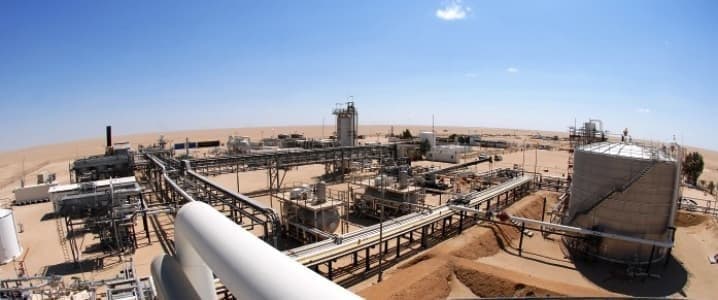Libya’s Largest Oilfield Could See Exports Interrupted

The largest oilfield in Libya, the 300,000-bpd Sharara field, could see crude oil exports from it disrupted if members of the Petroleum Facilities Guard (PFG) follow through with their threat to shut down exports if their demands for pay are not met.
Earlier this week, the PFG issued an ultimatum demanding they be paid field allowance compensation, Argus reported on Thursday.
The Sharara oilfield was pumping crude oil near its capacity, at a rate of 280,000 bpd as of the middle of March, according to internal memos of the Akakus Oil joint venture operating the oilfield seen by Argus.
The threats of guards disrupting exports over unpaid wages or other allowances are nothing new in Libya’s oil industry, which has been suffering for ten years now from fighting since Muammar Gaddafi was toppled in 2011.
In February this year, a tanker had to leave Libya’s Hariga export terminal without oil after members of the Petroleum Facilities Guard stopped the vessel from loading crude amid a strike over delayed salary payments.
In March, a new cabinet was sorn in, the first unity government of the war-torn country since 2014, reviving hopes that Libya could see more stability in oil production going forward.
Libya—exempted from the OPEC+ cuts—surprised many oil market observers, and probably the OPEC+ group itself, after managing in just a few months to restore its oil production back to 1.25 million bpd from less than 100,000 in September 2020, when an eight-month-long blockade on its oil ports ended.
Libya may be able to maintain its current level of oil production of around 1.2 million bpd until the end of this year as the oil sector is finally receiving enough funding for field maintenance and development, Libya’s Oil Minister Mohamed Oun told Bloomberg in an interview last month. In March, Oun was sworn in as the first oil minister of the country since 2014.




